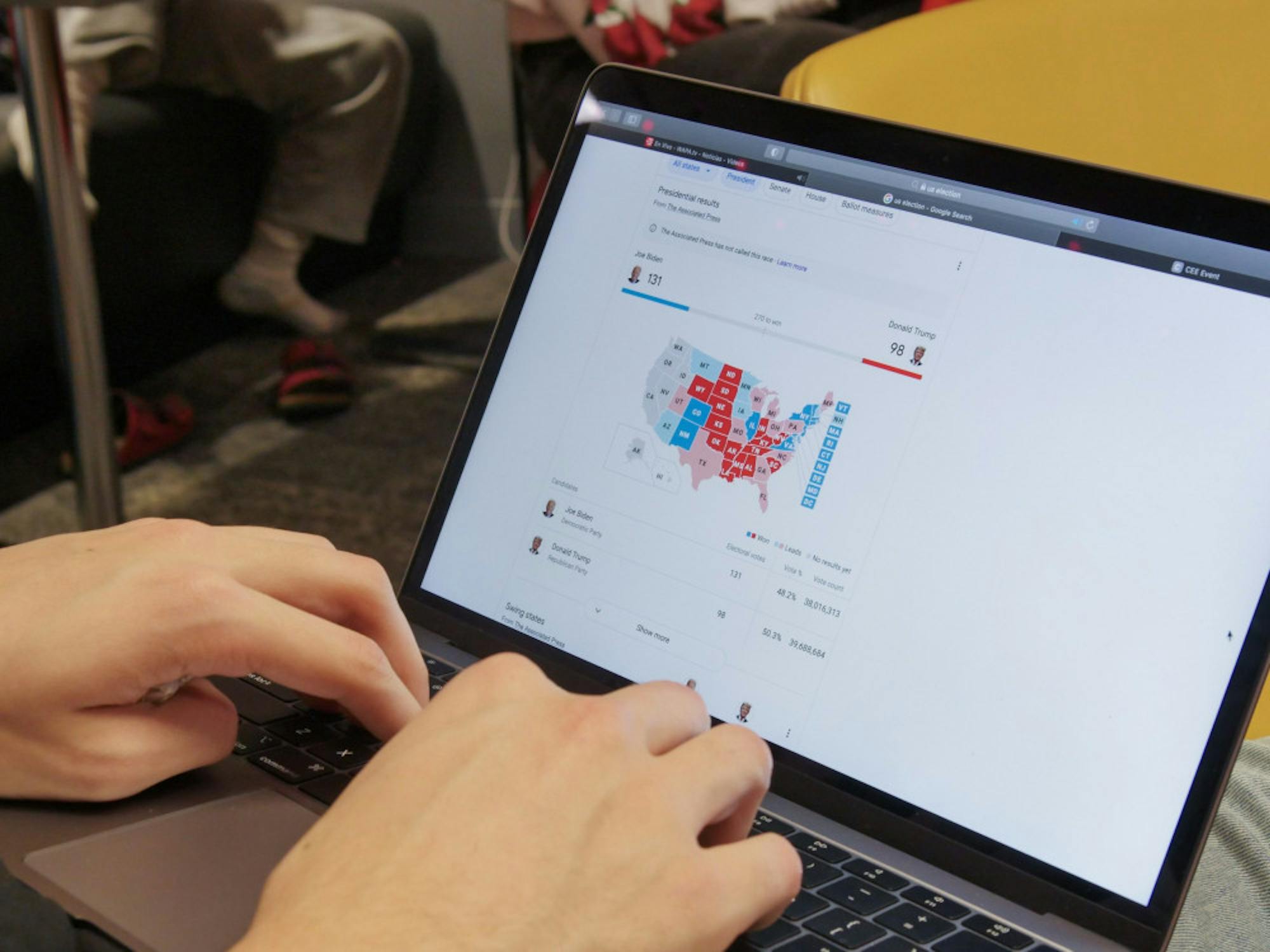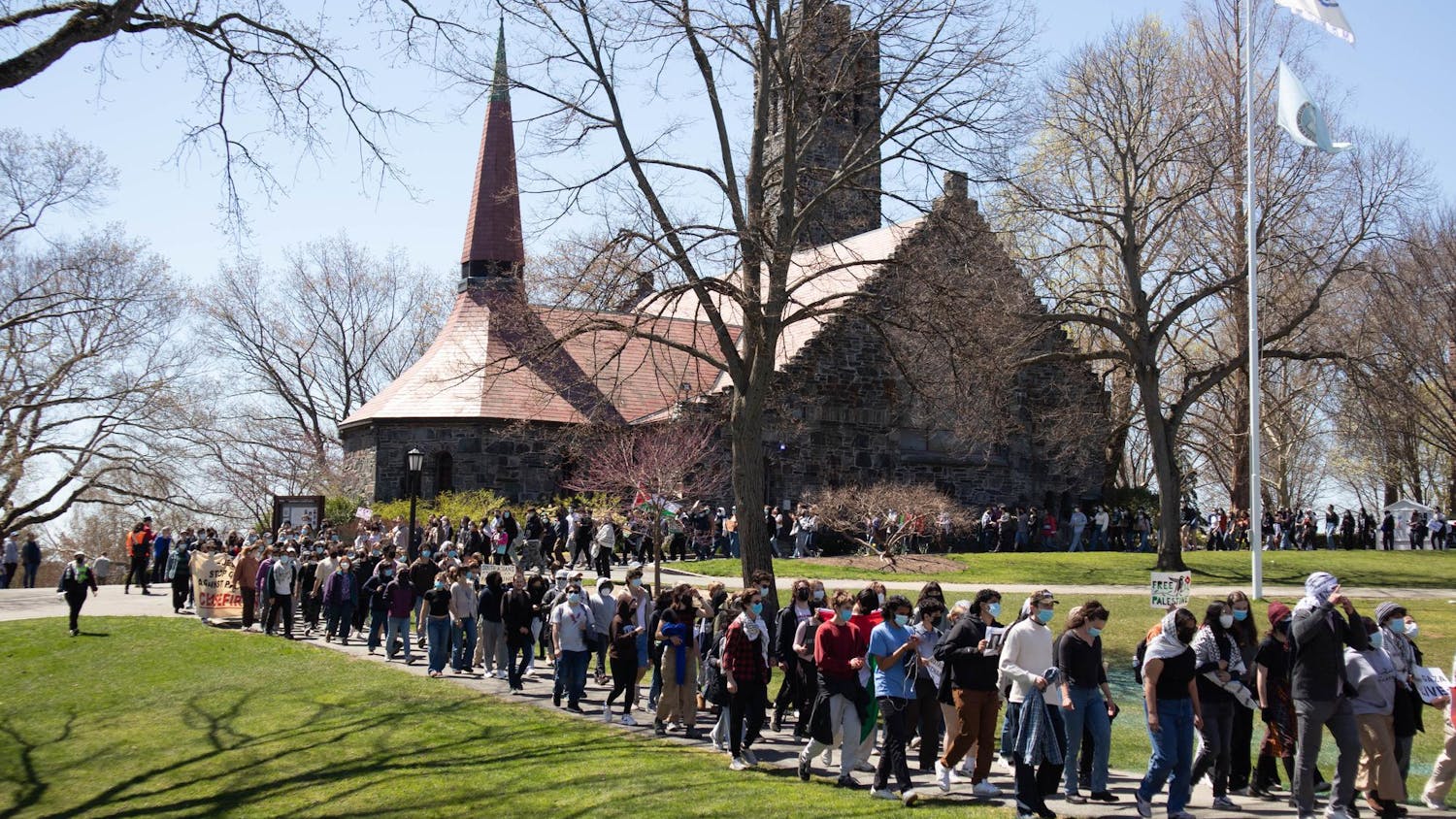The Jonathan M. Tisch College of Civic Life hosted a panel on Dec. 9 titled “Election 2020: What happened? What’s Next?” that featured representatives from Tisch College, The Fletcher School, the School of Medicine and the School of Arts and Sciences.
University President Anthony Monaco delivered opening remarks and Tisch College Dean Alan Solomont moderated the event.
Solomont first asked the panel for their main takeaways from the 2020 election. Kei Kawashima-Ginsberg, director of the Center for Information and Research on Civic Learning and Engagement at Tisch College, highlighted the role that young people played in this year's election.
“Young people showed up in large numbers and made a really decisive choice towards Democratic candidates across the board,” she said.
Kawashima-Ginsberg also explained the importance of communities that came together to ensure that everyone was able to vote and that everyone knew how to obtain a mail-in ballot.
“Over the summer and in the spring we were starting to see really, really challenging barriers to young people who want to participate, but face a lot of barriers,” she said. “Having [the information about how to vote by mail] communicated to young people and preparing earlier and earlier thanks to many activists and many organizations … was a really significant win."
Brian Schaffner, Newhouse professor of civic studies and professor of political science, explained how the election results put the country's divisions on display.
“We had another very close election,” he said. “What that actually reflects is that we’re still an extremely divided country … we’re very much divided on these issues of identity, and these issues of identity tend to override almost everything else.”
Solomont asked Amy Lischko, associate professor of public health and community medicine at the School of Medicine, what the election results mean for health care.
“Even if the Democrats win [the runoff elections] in Georgia, there’s just not a mandate, I think, for big changes given what happened in the election,” she said. “It’s going to mean more incremental [changes] as opposed to some of these bigger ideas that President-elect Biden has talked about."
Bhaskar Chakravorti, dean of global business at The Fletcher School, explained how a Biden administration will approach foreign policy. Chakravorti described Biden as the “ultimate committeeman.”
“[Biden] tries to get people together in a room in order to find solutions to problems,” Chakravorti said. “I see that being perhaps almost a metaphor for foreign policy for Joe Biden as we look ahead.”
The discussion returned to the topic of the youth role in the election when Solomont asked Kawashima-Ginsberg to explain youth political engagement and its importance in the future.
“It’s really important to think about young people as partners, rather than levers … [It’s important to think] about young people as long term stakeholders, not just somebody who can elect a Democrat into the office in the next cycle or two,” Kawashima-Ginsberg said.
Schaffner discussed the inaccuracies in pre-election polling and what that means for the future of political polls.
“It’s useful to take a step back and just think about all the things that go into doing an election poll that make it so difficult,” Schaffner said. “It’s the one kind of polling that we do that we actually don't know the population when we do the poll … we’re trying to do a poll of voters but people haven’t even necessarily voted yet.”
Schaffner cited the distrust of institutions like the news media as a possible cause of pre-election poll inaccuracies.
“When you have a candidate like Trump … that peddles a message of not trusting institutions, like the news media … it can potentially cause problems for pollsters,” he said. “Those individuals, those particular Trump supporters, may be less likely to answer polls, and it may make it more challenging for us."
Solomont asked Chakravorti to discuss the implications of the 2020 election for international trade and foreign policy.
“The data economy, or the digital economy, has grown four times as fast as the overall American economy, so that is the place to go if you are looking for economic recovery,” Chakravorti said. “It is enormously important for President-elect Biden and his team to wrap their arms around the digital economy and the implications for international business,” he said.
Returning to the topic of healthcare, Solomont asked Lischko how the pandemic will affect the healthcare policy debate.
“In the short term, we’re going to see a lot of focus on the pandemic, of course,” Lischko said. “There's an opportunity, maybe, to use this pandemic, if you will, to maybe rebuild some of the public health infrastructure that is really sorely needed,” she said.






